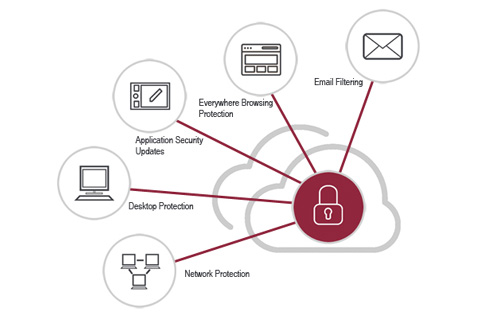What is a endpoint protection ?
Endpoint protection is a term often used interchangeably with endpoint security. Endpoint protection is often used to describe security solutions that address endpoint security issues, securing and protecting endpoints against zero-day exploits, attacks, and inadvertent data leakage resulting from human error.
Endpoint protection solutions provide centrally managed security solutions that protect endpoints such as servers, workstations, and mobile devices used to connect to enterprise networks. Targeted attacks and advanced persistent threats can’t be prevented through anti-virus solutions alone, making endpoint protection a necessary component of full-spectrum security solutions capable of securing data for the world’s leading enterprises.
How Endpoint Protection Works ?
- As BYOD (Bring Your Own Device) programs are becoming increasingly adopted by enterprises, endpoint protection is adapting to provide protection for mobile endpoints such as laptops, smartphones, and tablet PCs in addition to more traditional endpoints like servers and desktop PCs. By creating and enforcing rules for endpoints, endpoint protection solutions are able to identify sensitive data and encrypt it, or block the copying or transfer of certain files or sensitive data based on enterprise classification.
- Endpoint protection in the enterprise environment is managed centrally, through a central administration server that manages and monitors the endpoints connected to the enterprise network. In the consumer environment, endpoint protection may be used to describe anti-virus software and other security solutions, which are managed and monitored on individual endpoints, as there is generally no need for central administration.
- Endpoint protection solutions often include network access control functionalities. Essentially, these describes various processes and protocols used to prevent unauthorized access to enterprise networks as well as sensitive data contained within the network or on connected endpoints. Endpoint protection typically evaluates an endpoint before permitting access, such as the operating system, browser, and other applications, ensuring that they are up-to-date and meet defined enterprise security standards before an endpoint (such as a mobile device) is granted access. In doing so, endpoint protection prevents the introduction of security vulnerabilities through devices that don’t meet pre-defined security rules.




